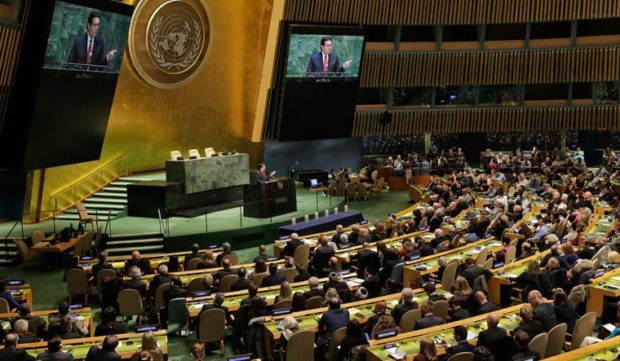
UN report takes note of policies, initiatives in India to combat child, forced marriages
PTI, Sep 24, 2020, 10:00 AM IST

United Nations: A report of the UN Secretary General on child and forced marriages has taken note of national policies and capacity-building initiatives taken in India to promote gender and child-sensitive health services, including for girls subjected to such alliances, and “promising experiences” about supporting those affected by the practices.
The Report of Secretary General Antonio Guterres on “Issue of child, early and forced marriage,” which covers the period from June 2018 to May 2020, said that several States adopted legislative and policy measures to raise the minimum age of marriage and also put in place comprehensive strategies to combat child, early and forced marriage.
The report contains an overview of progress made towards ending child, early and forced marriages worldwide.
“For example, Ethiopia, Ghana, India, Mozambique, the Niger and Uganda developed national policies and guidelines and undertook capacity-building initiatives to promote more gender and child-sensitive health and protection services, including for girls subjected to child, early and forced marriage,” the report said.
The report also includes promising experiences with programmes aimed at ending those practices and supporting already married girls and women affected by the practices.
It added that in India, adolescents are involved in the “Ladli Samman” campaign, which consists of the mapping of social and economic vulnerabilities and linking them to social protection schemes and counselling support.
The report noted that the empowerment of girls at risk and that of already married women and girls can also be promoted by ensuring their access to economic assets and by strengthening their financial independence and their livelihood and entrepreneurship skills.
“Families suffering from financial instability are more likely to regard daughters as an economic burden, in particular when unable to finance a daughter”s education, and consequently justify their early marriage,” the report said.
In India, the UNFPA-UNICEF Global Programme to Accelerate Action to End Child Marriage supported the Kanyashree Prakalpa programme of West Bengal through conditional cash transfers to encourage their continued education and prevent child marriage.
The report said that countries and other stakeholders have also undertaken efforts towards addressing the specific needs of girls and women affected by child, early and forced marriage.
In India, the Institute of Health Management contributed to empowering several dozens of married girls. They had the opportunity to obtain access to health, educational, economic and legal support.
Another programme reported by UNICEF refers to more than 1,500 adolescent girls trained as digital champions (sathis) who had produced 103 short videos covering positive stories of resistance to, or avoidance of, child marriage.
According to the United Nations Children”s Fund (UNICEF), in the past decade, 25 million child marriages have been prevented globally thanks to the increased rate of girls” education, the proactive investment of governments in adolescent girls and the raising of the public”s awareness of the harms and illegality of child marriage.
However, globally, the total number of married girls is estimated to be 12 million per year. The prevalence rate of child, early and forced marriage remain high, in particular in some regions, such as sub-Saharan Africa and South Asia, which represent 18 per cent and 44 per cent, respectively, of the global burden.
A marked reduction in the prevalence rate was recorded in South Asia, however, the prevalence in Latin America and the Caribbean has remained stagnant for 25 years.
No region is on track to eliminate child, early and forced marriage by 2030, as set out in the 2030 Agenda for Sustainable Development.
Furthermore, the COVID-19 pandemic has transformed the lives of children and families across the globe, negatively affecting efforts towards ending child, early and forced marriage and unions. Reports are emerging from Africa and Asia in particular of an increase in the number of early or child marriages, the report said.
Udayavani is now on Telegram. Click here to join our channel and stay updated with the latest news.
Top News

Related Articles More

India & Kuwait elevate ties to strategic level; ink defence pact after PM Modi meets top Kuwaiti leaders

In Kuwait, PM Modi meets yoga practitioner, other influencers from Gulf country

PM Modi receives Kuwait’s highest honour

PM Modi in Kuwait meets translator, publisher of Mahabharata, Ramayana in Arabic

Indian manpower, skills will help build ‘New Kuwait’: PM Modi
MUST WATCH
Latest Additions

Kannada Sahitya Sammelana: Food distribution creates stir

Rohit gets hit in nets, practice pitches on slower side

India & Kuwait elevate ties to strategic level; ink defence pact after PM Modi meets top Kuwaiti leaders

In Kuwait, PM Modi meets yoga practitioner, other influencers from Gulf country

Notorious gangster wanted in UAPA case arrested at Nepal border
Thanks for visiting Udayavani
You seem to have an Ad Blocker on.
To continue reading, please turn it off or whitelist Udayavani.

















